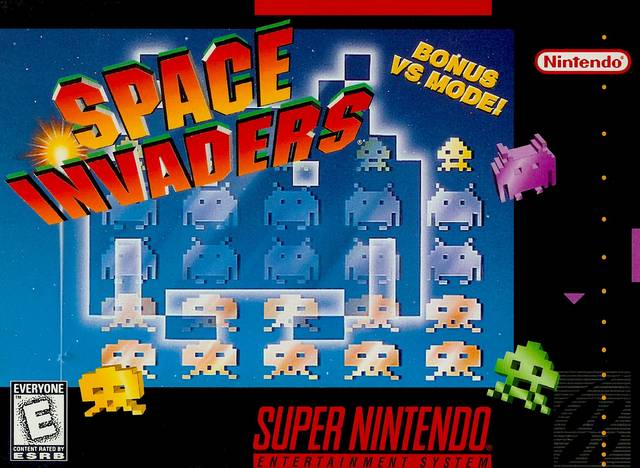
No one is going to argue with you if you say that paintings are an art form. The same goes for classical music or great literature. But when people may begin to feel differently is when newer forms of media are described as “art.” Video games fall squarely into that argument as one of the newest, and often most controversial, forms of media. While there are elements of video games that undeniably fall into the larger term of “artwork” (such as the music and writing), the argument remains about whether the video game itself is a piece of art. So to be very clear, we are asking if, from a philosophical standpoint, video games should be considered as works of art.
Thus, our goal with this article is to explore the question “Should video games be considered art?”, first exploring exactly what “art” is, and then trying to fit video games into that explanation. We will explore both sides of the argument, and in the end, hope you can make your own decision in whatever direction you feel is right!
What Exactly is Art?
Art has been created and studied by humans in many different forms as far back as humanity can be traced, from cave paintings to virtual reality video games (assuming you are in the school of thought that accepts these games as art). Many philosophers believe that art is something akin to human nature, and that humans MUST create art in some form to explore the unknown and channel our imagination. Art has also been used as a form of communication, entertainment, and even for political or social change over the years.
To decide if video games can be considered art, we have to first understand how art is defined by critics and philosophers. Art is something created by humans to showcase their technical skills and imagination and is meant to be seen for its beauty and emotional power over its audience. Classically, paintings, sculpture, and architecture are the only fields considered to be artwork. In more modern times, theatre, dance, movies, and other performing arts have been added to the art world. All of these fields create emotion in the viewer, and all are in achieving an certain aesthetic goal through the creator’s skill.
How Do Video Games Fit In?
So what about video games? How do they fit into this classical definition of art, or do they not quite make the cut? Video games are a medium that is full of drawings, graphic design, musical composition, and writing. That seems like it’s a combination of many different art forms, at least in the base idea of what comprises a video game. Most modern games do set out to tell some kind of story, and they do elicit an emotional response in players. Games can make people laugh and cry, feel terror or achievement, and more. Gamers become invested in stories and characters, and lost in immersive interactive environments.
Following the classical definition of art outlined above, video games seem like they might fit. They are made by people with some level of technical skill; it’s no small feat to create a video game, and people do need to have creativity and talent to do it. They make people have strong emotional responses. And games can deliver both entertainments as well as political and social messages, depending on the content of the video game. By all intents and purposes, it sounds like video games are okay to be accepted as art work.
You may be asking yourself if video games fit into the basic definition of art, why is this still an argument? Keep reading to learn the other side of the story!
Why the Controversy?
Art Many gamers would immediately argue that of course, video games are undeniably art and should be considered as such. They have beautiful graphics, moving musical scores, compelling stories, and can take players on endless emotional journeys. So why is this even still an argument? The answer may be more complicated than you think.
One of the leading people on the opposition against video games being considered art is the famous film critic Robert Ebert. In his many arguments on the subject, Ebert says that there are too many elements that prevent video games of any kind from being artwork. First, they are too malleable in his opinion; because players interact with and change the virtual world, often with multiple endings and choices, it takes away from any original expression and story a creator of the game would have. Second, video games are held back by rules and goals. At the end of the day, you’re meant to “win” the game in some form. Ebert argues that “games” that are more about having an experience than winning anything are no longer games, but rather visual representations of another story.
Others have agreed with Ebert and gone on to cite even more reasons against games being art. Brian Moriarty, a big name in the game industry, said that video games are really just extensions of other rule-based games like chess, cards, or even pinball, which can never be considered art. Another big name in the game industry, Hideo Kojima, also agrees. Kojima says that video games are a service meant to achieve a 100% rating by all players, making them too commercial to ever compare to fine art. Finally, Michael Samyn and Auriea Harvey, creators of the indie video game company Tale of Tales, claim that while art is humanity’s search for higher meaning and purpose, video games will always just be created by the base human need to play and be entertained.
Final Thoughts

However you stood before reading this article on the question of video games as art, we hope we have given you more to think about. There have been many scholarly papers written on the question of whether or not video games are art, and we have just scratched the surface and presented the most points in this article. If you’re interested in reading more about this, be sure to check out some of the scholarly works available to read! This argument is an ongoing, very modern one, so you might as well get in on it - and sound educated while you’re at it.
So what do you think? Are video games a form of art? Should they be considered an art form the same way that paintings, sculptures, movies, and novels are? In what way are they art; because of their presentation, stories, and music? Or because of the emotional response that they create in players? Can only indie “art games” be considered art, or can commercial games too? Where do you stand on the argument? We would love to hear your opinion in the comments!
Recommended Post


